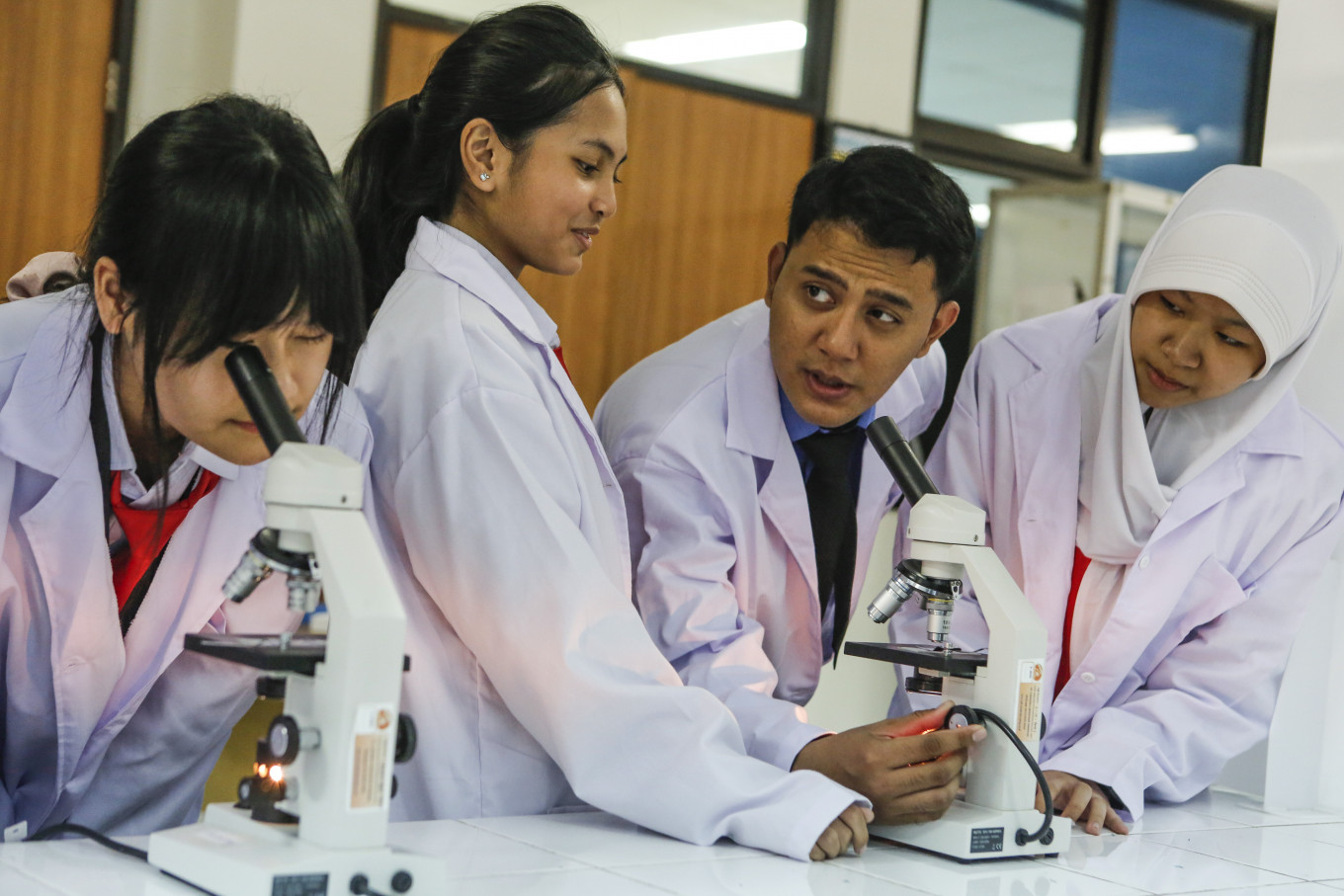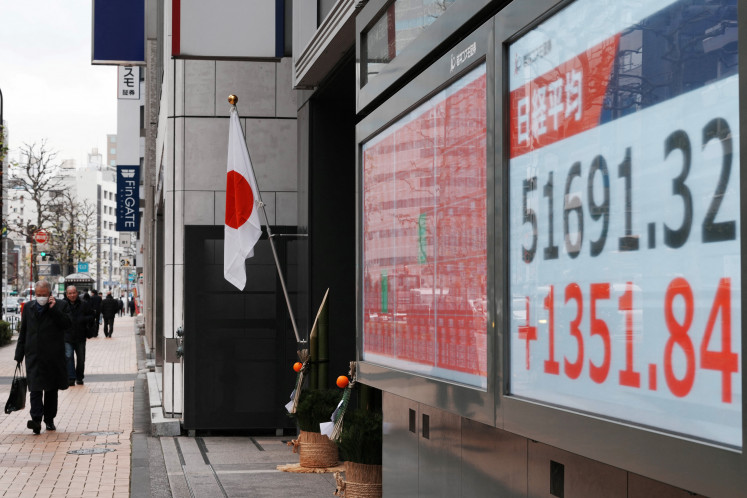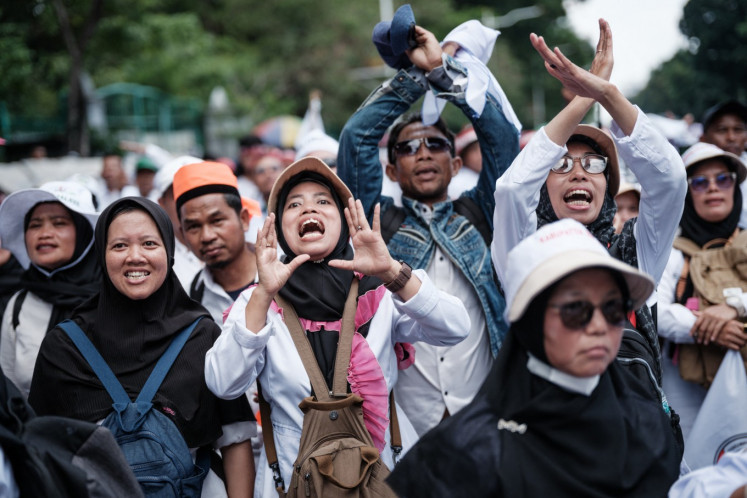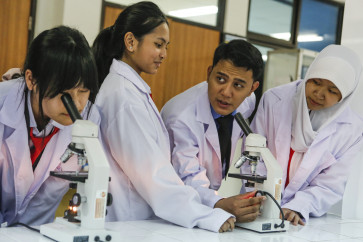Popular Reads
Top Results
Can't find what you're looking for?
View all search resultsPopular Reads
Top Results
Can't find what you're looking for?
View all search resultsEducation beyond ambition
Indonesia’s education system continues to struggle with underpaid teachers, uneven resource distribution and dilapidated schools in vast parts of the country.
Change text size
Gift Premium Articles
to Anyone
 A teacher demonstrates the use of a microscope to students on Oct. 8 at SMAN Unggulan MH Thamrin in Cipayung, East Jakarta. The school is one of 12 schools selected for transformation under the Sekolah Garuda (Garuda School) program, one of President Prabowo Subianto's education initiatives. (Antara/Asprilla Dwi Adha)
A teacher demonstrates the use of a microscope to students on Oct. 8 at SMAN Unggulan MH Thamrin in Cipayung, East Jakarta. The school is one of 12 schools selected for transformation under the Sekolah Garuda (Garuda School) program, one of President Prabowo Subianto's education initiatives. (Antara/Asprilla Dwi Adha)
I
ndonesia has a new “crown jewel” in its education agenda: Sekolah Garuda (Garuda School), an elite program launched under President Prabowo Subianto.
Promoted as a tool to groom the country’s future leaders and align with the 2045 Golden Indonesia Vision, the recently introduced initiative is divided into two categories. Sekolah Garuda Transformasi (Transformed Garuda Schools) seek to upgrade already excellent schools by enriching curricula to combine national and international standards, aiming to prepare students to compete globally, especially in science and technology.
Meanwhile, Sekolah Garuda Baru (New Garuda Schools) will be built from scratch in underdeveloped regions outside Java, the country’s most developed and populated island, purportedly to provide equitable access to high-quality education across the nation. Four schools are being developed this year in Bangka Belitung, East Nusa Tenggara, North Sulawesi and North Kalimantan.
At first glance, the program seems visionary. Elite schools in the United States, the United Kingdom and China have long played a key role in developing talent and producing the leaders, innovators and scholars who drive national progress. By this logic, Indonesia’s push for elite schools could be seen as a necessary step to catch up with global peers and produce a generation capable of navigating the challenges of the 21st century.
Yet closer examination of the Garuda School program reveals significant contradictions and risks. Indonesia’s education system continues to struggle with underpaid teachers, uneven resource distribution and dilapidated schools in vast parts of the country.
Meanwhile, the government plans to build dozens of New Garuda Schools, setting aside Rp 200 million (US$12,062) for each. While elite schools may benefit a select few, millions of students languish in underfunded classrooms lacking basic facilities. In a country where most schools fail to meet minimum standards, focusing on a handful of elite institutions risks deepening inequality rather than ending it.
The Transformed Garuda Schools raise even more questions. Many of the schools targeted are already excellent, staffed with capable teachers and equipped with advanced facilities - advantages often supported by high tuition fees.


















